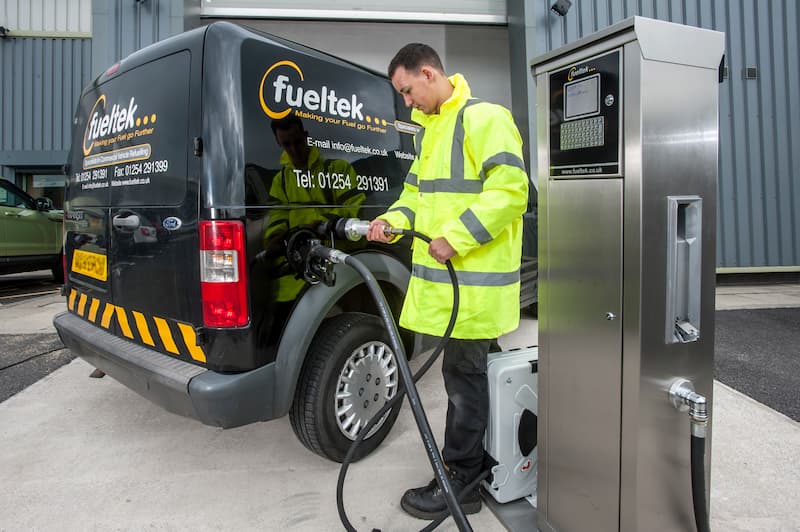6 Ways to Improve Your Commercial Fleet Operations
Finding and improving areas that are letting your company down can be challenging amidst the day-to-day activity. However, by investing time into analysing your fleet’s actions, you will be able to achieve competitive business goals and not only maintain your company’s position but rise and grow. So read on to explore our recommendations for improving your fleet operations.

1. Implement Driver Refresher Training Time
Driver refresher training is a valuable tool for optimising commercial fleet operations. Unfortunately, it’s natural that drivers develop bad habits or become complacent with safety procedures over time, increasing the risk of vehicle accidents and damage. In addition, by improving driver behaviour, companies can reduce the risk of accidents and associated costs, such as increased insurance premiums and vehicle repairs.
Investing in refresher training helps to reinforce the best driving habits and introduce them to new driving techniques that can help to optimise fleet operations for fuel efficiency. For example, green or eco-driving is a range of driving attitudes beneficial for efficient fuel use. Green driving aims to eliminate wasteful actions such as idling and aggressive driving, consuming more fuel than is necessary to complete the assigned journey.
Driver refresher training will teach eco-driving to eliminate fuel wasted, reduce fuel expenses and decrease your fleet’s environmental impact.
2. Improve Driver Routes
Efficient route planning beforehand is a critical factor in optimising commercial fleet operations. By analysing traffic patterns, road conditions, and other relevant data, fleet managers use apps and software to create more streamlined and optimised routes for their drivers.
Route analysis provides many benefits, including getting the most out of your fuel, lower vehicle maintenance costs, and increased productivity. By taking the most efficient route to their destination, drivers can save time and reduce vehicle wear and tear, prolonging vehicle lifetimes and lowering overall maintenance costs. Additionally, efficient route planning helps to minimise idle time and support the previously mentioned eco-driving practises, resulting in significant cost savings over time.
3. Wireless Fuel Monitoring
Wireless fuel monitoring systems are significant upgrades over existing wired systems locked to a single location. Fuel monitoring systems like our online fuel management system provide real-time data on fuel storage and dispensing, allowing fleet managers to remotely identify authorised fuel consumption and monitor any unnecessary or unauthorised usage. Our monitoring systems extend from a comprehensive overview to more focused software and hardware combinations, such as:
- Tankwatch: A fuel tank monitoring system that helps managers by providing accurate information on the current stock, available tank capacity (ullage), stock movements, deliveries and throughputs, making it easy to assess any problem areas.
- Fuel Access Control Terminal (FACT): A physical terminal supported by our Fuel Manager Online (FMO) software wirelessly through a LAW/WAN / Bluetooth or WI-FI to provide real-time data on usage.
By leveraging wireless fleet management and fuel monitoring, commercial businesses will optimise their operations, reduce costs, and improve efficiency, leading to a more profitable bottom line.
4. Invest in On-site Wholesale Fuel Storage
One of the primary advantages is the ability to control your fuel costs more efficiently. Investing in bunded diesel tanks significantly improves commercial fleets’ fuel expenses. In addition, with an on-site storage tank, companies can purchase fuel in bulk and take advantage of wholesale pricing.
This is because wholesale pricing is based on bulk purchases and typically involves a lower markup than what is charged at public forecourts. For commercial fleet companies with high fuel consumption, buying in bulk at wholesale prices can result in substantial cost savings over time.
Additionally, companies that invest in on-site fuel storage can take advantage of wholesale pricing and avoid the higher costs associated with purchasing fuel from public forecourts. With the ability to buy fuel at a lower price and store it on-site, companies can better control fuel expenses and allocate resources towards other areas of their operations.
Companies can also benefit from increased operational efficiency, as they no longer need to divert drivers to refuel, leading to improved productivity and customer service.
5. In-Depth Asset Management
With your driver’s performance improved and fuel acquisition costs reduced, it’s time to consider the vehicles themselves. Asset management will affect the performance of your vehicles with solutions such as preventative maintenance, ensuring your machines run as efficiently as possible.
Many fleet managers use metrics to help track asset status over long periods. Maintenance metrics involve several actions, such as daily inspection reports and preventative or emergency maintenance, to create a clear image of the asset’s performance. These are all to prevent your vehicles from getting too worn or damaged, as HGVs in adverse conditions will consume more fuel as they operate and risk breaking down. Taking the time to track odometer readings will assist in other metrics, such as scheduling preventative maintenance.
6. Competitor Analysis
Internal-only analysis of your company will limit your performance analysis; remember to compare your status with your competitors to provide a fresh perspective on your efficiency. By analysing the strategies and operations of competitors, fleet managers can identify potential areas for improvement, such as optimising routes, reducing costs, and improving customer service.
Through this process, businesses learn from the successes and failures of their competitors and identify new opportunities for growth and optimisation. By staying ahead of the competition, companies can improve their market position and attract new customers, leading to increased profitability and growth.
Complete Fuel Management Packages from Fueltek
Fueltek is the UK’s leading designer and installer of on-site fuel management systems. Our range of products and services includes:
- Fuel tanks
- Diesel pumps
- Fuel monitoring software
Because of fuel’s importance, the quality of your fuel management will affect every area of your fleet management, and it’s vital to ensure this core factor is as efficient as possible. For example, the unique benefits of the options above will combine impressively to create a cost-efficient fuel solution for your commercial fleet and significantly improve your company’s fleet operations.
Our solutions are designed to meet each of our client’s unique needs, with customisation options available to ensure the system aligns with the specific requirements of the fleet. With over 30 years of experience in the industry, We have a proven track record on our case studies for delivering high-quality solutions and exceptional customer service. Contact us to discover how our products will significantly improve your commercial fleet operations.










